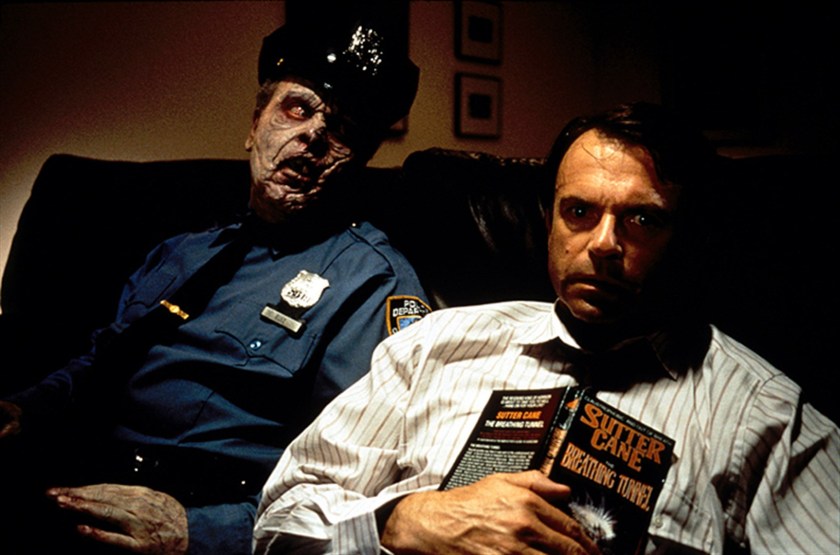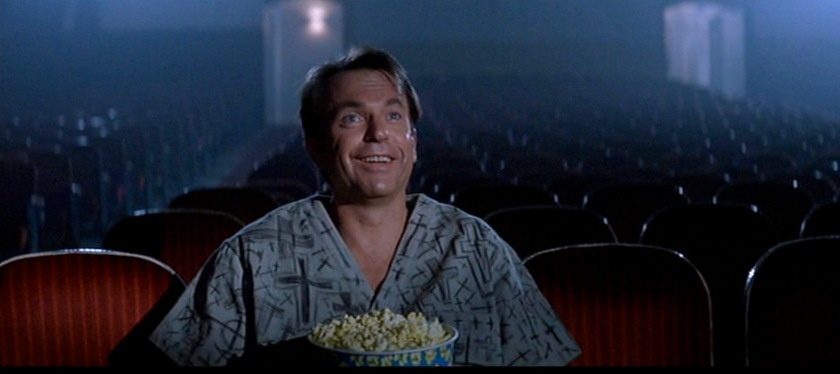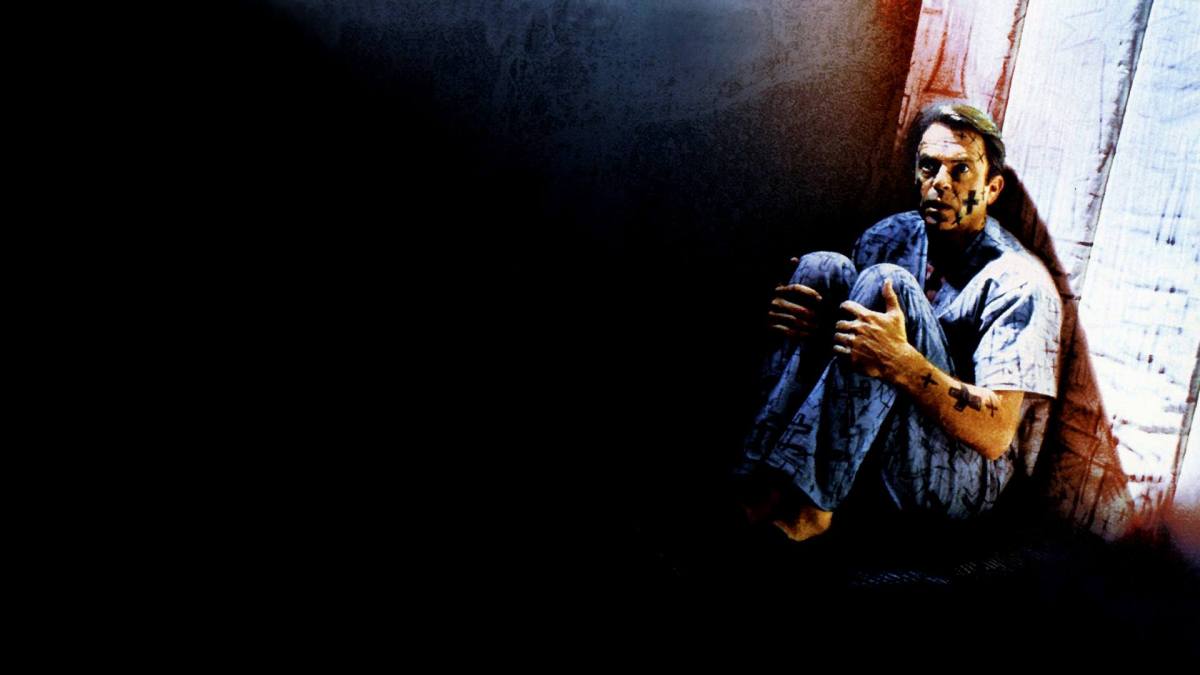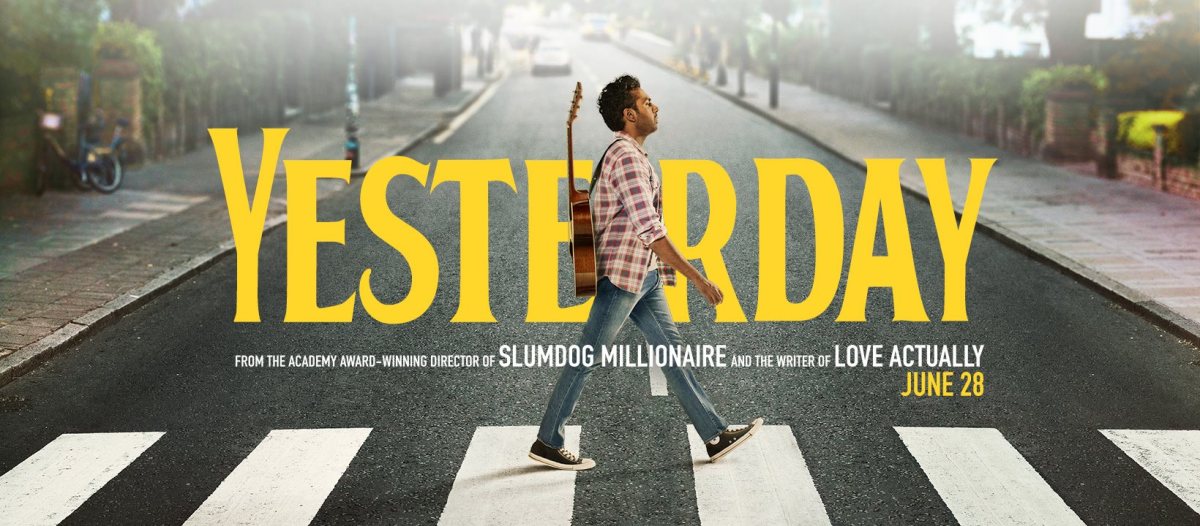The latest release of the long-gestating film sequel to The Shining, Doctor Sleep, marks an ever-growing thunderous run of Stephen King novel-to-film releases swamping theatres and streaming services the past couple of years. People everywhere no doubt soak without remorse in the pleasurable gamut of fictional horror stories that The King of Horror has put pen to paper over decades. But imagine if there was a story that not only deftly infuses a plethora of King’s finest tropes with beautiful subtlety, but also explores the possible extremity of horror fiction’s impact on the masses (much like our own reality with audience’s consumption of King’s film novels and adaptations). Well, there is. Kind of.
It’s a film I dare deem the greatest “Stephen King” film that isn’t actually an adaptation of the author’s written works – rarely echoed in today’s burgeoning conversation of horror classics in light of the genre’s ongoing renaissance. I’m talking about John Carpenter’s In The Mouth Of Madness. This 1994 psychological horror film stars Sam Neill as a nosy yet nonchalant insurance investigator named John Trent who’s in search for famed multi-novel horror author Sutter Cane (in other words, Stephen King). Entering a ghost town where Crane supposedly resides, John begins experience subtle ghastly hallucinations that eventually transition into tangible, ghoulish incarnations hell-bent on unleashing an unspeakable evil – all thanks to the Crane’s written works that become a vessel for evil’s dominion to crossover to our reality.

At best, the film’s a cinematic serenade that effortlessly injects King’s pension for transforming the ordinary into symbols of unrelenting terror into what’s essentially a classic Lovecraftian horror narrative. Peeling someone apart at the seams of their sanity never looked or felt as thrillingly grotesque than here which is arguably this film’s greatest strength (just look at the film’s poster artwork for goodness sake!). Legendary horror director John Carpenter himself manages to restrain his go-to gory onscreen musings (e.g. The Thing) to flesh out the absolutely insane mental trip Trent braves through. Sam Neill also kills it with his vibrant portrayal of the desperate and increasingly chaotic Trent who’s witnessing his reality being demolished before his very eyes – his attempts at regaining his sanity getting meeker as the darkness leisurely devours the inner machinations of his fractured mind.
The movie isn’t without its fair share of pitfalls, however, with much of it coming from the film’s third act which postulates an intriguing closure for our protagonist but fails to answer a couple of under-explored plot points that might inconvenience you the more you try to wrap your head around them.

In the end, these imperfections fade into obscurity as you ultimately get sucked into a genuinely haunting thrill ride about how human irrationality can be escalated by fictional horror tales that increasingly blur the lines between what’s real and what isn’t. You know, you tend to take so much delight when reveling in dark and disturbing fiction that you become almost insensitive to these horrifying escapades. Does that insensitivity mean you’re now immune to these horrors, or have you already succumbed to evil’s manipulation?
*All image rights belong to their respective rights holders.




